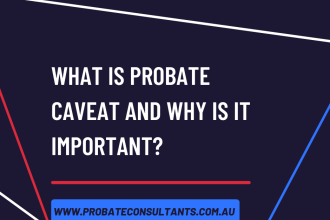Partition actions, legal proceedings to divide jointly owned real estate, can quickly become complicated, especially when the interests of minors or vulnerable individuals are involved. These cases cannot be classified solely as relating to property division. Therefore, further legal measures must be employed to protect the weak parties in these cases. Families,co-owners, and legal practitioners need to recognize the different legal complications that characterize such cases to obtain the desired solution.
Court Oversight and Protective Measures
When a minor or an incompetent person is involved in a partition action, the court plays a special protective function. Unlike other property disputes where the co-owners are expected to act in their self-interest, the vulnerable member needs protection at all stages, handled in a court of law. Courts often appoint a guardian ad litem to act on behalf of the minor or vulnerable individual. Without such protections, the possibility of being taken advantage of or making a wrongful decision may have unfavorable consequences for the affected person with limited capacity.
Issues with Consent and Decision-Making Capacity
The legal capacity of a minor when it comes to contracting legally or making legal decisions on real estate investments is limited. Equally, other occupants of comparable need for protection are those with mental health disorders or those under conservators; they cannot exercise discretion over property rights on their own. This complicates legal proceedings in a partition action, even in the sale or division of the property, because mutual consent must be obtained. In this case, a guardian or conservator must act on behalf of the minor or incapacitated person. The judge must be convinced that the outcome sought and achieved is legal and benevolent to the protected party.
Property Valuation and Equitable Distribution
One of the significant factors is the valuation of the property and division amongst the members of the partitioning division. Specifically, when the vulnerable parties are involved, the court would not accept any valuation to undervalue the specific asset or favor the other co-owners enormously. Whether the outcome is a sale or a partition in kind (physical property division), the court may require professional appraisals, real estate expert testimony, and extensive documentation. In many cases involving a seasoned property lawyer San Diego, residents’ trust becomes essential to ensure proper valuation methods are used and presented effectively in court.
Legal Delays and Procedural Complexities
It is observed that cases where children and other susceptible persons are involved in the action are likely to take more time than usual. Judicial authorities refrain from making hasty decisions that may affect the recipient’s life for the rest of their lives, probably because the latter does not understand the implications. Sittings can also be conducted to consider other issues related to guardianship, confirm the valuation of properties, and consider any objections that may be presented. Furthermore, some jurisdictions’ laws compel the court to approve every partition sale of land to respect the minority or capacity of the co-owners, and this simply means an extra layer of regulation and permission.
Family Disputes and Emotional Strain
Standard breach of partition actions are already a sensitive process, but it is often heightened when family members differ regarding who should care for a minor or dependent person. All these are not just legal issues arising out of various legal relationships between people, but also underlying emotional issues and family backgrounds. There are potential conflicts regarding who is to exercise the power of management and responsibility, whether the property must be sold, and so on, and how the proceeds should be utilized. Such conflicts may raise issues such as pressure and compulsion or even abuse of older people.
The Importance of Judicial Approval
Personnel do not act solely for self-interest, regardless of how benevolent the co-owners are; any actions for the benefit of a minor or a vulnerable adult need court clearance. This legal requirement helps ensure that guardians or conservators are not inclined to act for their benefit or, in some cases, neglect their duties. Before permitting a property sale, judges can use appraisals, proposed division, and documentation of the protected party’s requirements. This scrutiny ensures that the outcomes educators make benefit the students and comply with legal requirements.
Conclusion
No partition is easy; however, if the plaintiff or defendant is a minor or any other competent adult is involved, things may become complicated. Thus, the circuit, attorneys, and relatives must develop favorable legal decisions to protect vulnerable individuals. With the help of proper legal advice and courts, it is possible to solve such cases legally and adhere to all citizens’ rights, paying special attention to those who need it.














